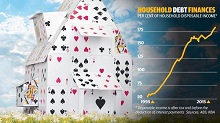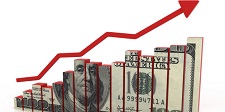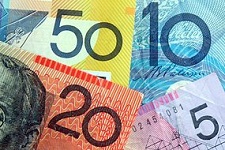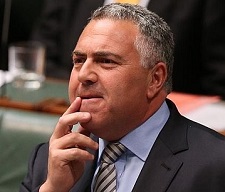The release of the national accounts the other day provided unexpected good news. GDP was barrelling along at a healthy rate of a 3 per cent increase per annum. Paul Syvret took a look behind the headline figures and discovered the ugly truth. We are in an income recession. Continue reading Living in an income recession
Tag Archives: Economics
Negative gearing
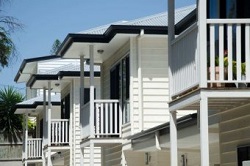 There are a few things we need to bear in mind when discussing the effects of proposed changes to negative gearing.
There are a few things we need to bear in mind when discussing the effects of proposed changes to negative gearing.
According to the AFR median weekly incomes in Sydney have increased by 17 per cent in the past eight years, while house prices have nearly doubled from $546,000 to more than $1 million. In Melbourne over the past six years median incomes have increased by 10 per cent while house prices have risen by 70 per cent, from $442,000 to $749,999. Prices are high and are due for a correction. Continue reading Negative gearing
Saturday salon 20/2
1. Morrison muffs his lines and Turnbull in trouble
Laura Tingle talking to Phillip Adams gave Scott Morrison 3 out of 10 for his speech to the National Press Club. We were promised vision and leadership when they turfed out Tony, now it looks like tinkering at the edges.
Teflon Turnbull had a bad week. Continue reading Saturday salon 20/2
Free trade or economic integration?
Last Thursday Andrew Robb and 11 other trade ministers signed the Trans-Pacific Partnership (TPP) trade agreement, rejecting calls for an independent cost-benefit analysis after the World Bank estimated it could lift Australia’s economic output by just 0.7% by 2030.
You see, everyone knows that free trade is good for us, Labor agrees, it’s just the ignorant Greens, trade unions, green groups and lefty outfits like Getup that disagree.
Actually, as recorded in the AFR, the studies are all over the place. Continue reading Free trade or economic integration?
The end of economic growth?
There is a new economic blockbuster out, The Rise and Fall of American Growth: The U.S. Standard of Living since the Civil War by Robert J. Gordon. In brief, his thesis is that 1870 to 1970 was a ‘special century’ of technological change yielding dynamic economic growth that transformed our lives. By contrast in America, nothing much has changed since then, growth has tapered right off and there is little prospect of significant change.
Is he right? Paul Krugman says, “My answer is a definite maybe.” Continue reading The end of economic growth?
Saturday salon 14/11
1. Rocky Horror Picture Show turns 40
When it opened in 1975 The Rocky Horror Picture Show was a bit of a flop, but then it rocketed to cult status and has never been off the screens since.
- Rocky Horror is full of strange bits and bobs: literally in its props and costumes and otherwise in madcap humour, lashes of pop culture references and the behaviour of an assortment of loony sexually liberated characters. It seems to takes place in a vacuum divorced from both time and space and the conventions of cinema – a garish, swirling patchwork joyfully here and there.
Will the bubble burst?
Seven years ago we were in Amsterdam airport departure lounge when the news came through that Lehman Bros would indeed go bust, which finally triggered the GFC (Global Financial Crisis).
James Headway, Chief Economist for the New Economics Foundation takes a look at what’s happening in China, and it’s scary.
China escaped by letting lending rip. Since then they have produced half the world’s growth. But in doing so they have created a giant property bubble, followed by a share market bubble. It looks like coming unstuck. Continue reading Will the bubble burst?
Inequality is bad for growth
The Economist spells out the message – inequality is bad for growth. And the growth they are talking about is plain old-fashioned GDP, not newer measures of happiness or well-being. Continue reading Inequality is bad for growth
Saturday salon 6/6
1. Vale Joan Kirner, 1938-2015
- She will be remembered for her tireless work promoting women’s rights, conservation, and education, and her love of Essendon Football Club.
In 2012, Ms Kirner was appointed a Companion of the Order of Australia (AC) for her work in advancing equality for women, and for her political achievements in the 1980s and 1990s. Continue reading Saturday salon 6/6
Where to with tax?
Since John Davidson posted the Greens’ ideas on tax there has been a lively debate. Here I give some links to views I have found interesting.
John Quiggin has started his own tax policy review Rethinking tax policy for Australia, a work in progress with a proposal so far to tax the “immensely profitable” banks to the tune of $5 to 10 billion.
Quiggin’s Guardian article is essential reading. Amongst the points he makes:
- The review itself is poor quality, adding little to the thinking of the Asprey Review of 1975. There are major omissions.
- The government is hoping for an increase in the GST, achieved through some combination of higher rates and the elimination of exemptions. This isn’t going to happen.
- “The fallback position, on which bipartisan agreement looks feasible, is a scaling back of the massive tax expenditures on superannuation. If that is the only outcome of Re:think, the exercise will have been a worthwhile one.”
Ben Eltham at New Matilda points out “reform” has become a dirty word. With this government it has come to mean mostly policies that are deeply regressive and unpopular. The government discussion paper on tax:
is the latest front in the Coalition’s neoliberal war on working Australians. It will fail for the same reasons the “reforms” to health and education failed: voters don’t want reform. They want high-quality public services, affordable housing, and a good job. They know companies aren’t paying their fair share, and they want them to pay more.
When will the government and business spinmeisters learn that “reform” is a massive turnoff for voters?
Clearly we need to pay more tax. The government’s way around this problem is to increase the GST. Peter Martin says that we should concentrate on captive sources of revenue:
The trick is to grab more of the money that’s bolted down and unable to leave the country, and less of the money that’s footloose. It’s anything but fair, but tax is about raising revenue more than it is about fairness, and we can’t raise revenue we frighten away.
So that means eliminating dividend imputation for shareholders, taxing superannuation and taxing people for owning property rather than buying it.
Don’t worry about the Googles, Microsofts and Apples. They’ll gravitate to the cheapest tax haven they can find.
Martin reckons that is we knock off dividend imputation the company tax could be reduced to 19 or even 15%. In any case it’s trending to zero.
Ian McAuley at New Matilda has a perceptive piece. He says:
Australia does need tax reform. There is even a case for increasing the rate and extent of the GST, but only if it is part of a comprehensive package aimed at collecting more revenue and making the whole system fairer.
But when tax reform is in the context of revenue neutrality, or even a reduction in overall taxes, and the message is that corporations should pay less tax while consumers pay more, the proposals are politically dead in the water.
McAuley is also not impressed with the notion that companies should pay less.
The regular World Economic Forum Global Competitiveness Reports tend to show that business tax concessions are the inducement of last resort, offered by countries with low education standards, poor infrastructure and unstable government.
Perhaps Hockey’s push for lower corporate taxes is in realisation that Australia is becoming that type of economy.
So to sum up, the Government’s main strategy seems to be to hold Commonwealth taxes to current levels, or less, but to shove off responsibility to the states for hospitals and schools necessitating an increase in the GST
However, they say that a change to the GST needs to be bipartisan. Labor sees it as highly regressive and won’t have a bar of it. Similarly the LNP won’t go near a price on carbon or a mining tax. There does seem to be some consensus now that super has to be part of the equation. In itself it’s unlikely to be sufficient.
What the exercise does do is to put the wood on both major parties to come up with proposals to take to the next election that are coherent, understandable and make a difference.
Science battles for recognition in Canberra

Generally speaking the Abbott government lacks recognition of science, to the point where its stance can be characterised as anti-science. That is certainly the case in climate science, but can be seen in many other ways, not least in the use of science infrastructure funding as a pawn in the political wars over how university teaching should be funded. Certainly too, the Abbott government lacks an appreciation of the contribution science and mathematics can make to transitioning out of our dependence on mining and other product exports in the economy.
In this context the Chief Scientist and the Australian Academy of Science commissioned a report The Importance of Advanced Physical and Mathematical Sciences to the Australian Economy. The report was produced by the Centre for International Economics (CIE).
The aim has been to produce an economic framework that can use the available statistics and economic modelling techniques to provide a timely reminder of how much of our national economic activity depends on the advanced physical and mathematical sciences (the APM sciences). The APM sciences comprise physics, chemistry, the earth sciences and the mathematical sciences, where ‘advanced’ means science undertaken and applied in the past 20 years. Biology and the life sciences were not covered in the report.
The direct contribution of the APM sciences is estimated to be 11% (or about $145 billion per year of the Australian economy). The contribution in additional and flow-on benefits equals another 11%, bringing the total benefits to 22% or around $292 billion per year.
This exercise was not helped by Age journalist Gareth Hutchens with an article entitled Australia’s scientists forced to rely on pseudo-science to be taken seriously in Canberra starting with:
It’s a shame that scientists have to stoop so low.
Climate scientist Roger Jones defended the report and its progenitors in a blog post.
We can all agree, Hutchens included, that it is a disgrace that such a report should be felt necessary for science to be taken seriously by those govern and plan for our future. There should be no need for a “timely reminder”; our leaders should have science and knowledge-based industries front and centre in their thinking. But to dump on the report in the way Hutchens does is in my view inflammatory, derogatory and misleading in that it gives the impression that the exercise was worthless. What Hutchens calls “guesses” were in fact informed estimates by the most knowledgeable people available.
In large part Hutchens is entering with hob-nailed boots the old argument of how much science there is in economics. I don’t know enough science or economics to usefully contribute, but Hutchens own account of the methodology used suggests a disciplined and rational approach.
They tell us lies, but are they clunkheads?
Back in 2010 just after the election and before the Gillard minority government had been formed, Laura Tingle wrote:
There are two possible explanations for how an opposition presenting itself as an alternative government could end up with an $11 billion hole in the cost of its election commitments.
One is that they are liars, the other is that they are clunkheads. Actually there is a third explanation: they are liars and clunkheads.
But whatever the combination, they are not fit to govern. (Emphasis added)
I visited this theme again in 2013 before the election, when Tingle took a look:
at where the PEFO numbers leave the LNPs budget task and finds that, at best, $25 billion more in ‘saves’ will be required.
She was commenting on the competence of the Joe Hockey/Andrew Robb team. Robb has of course since been replaced by Mathias Cormann.
Peter Martin has now written a searing critique of the Abbott government’s economic performance against what they tell us. Cormann told the ABC
the economy was “heading in the right direction”. He wanted “to build on the achievements we made in 2014”.
Martin comments:
That year began with a quarterly rate of economic growth of 1 per cent. After the budget, it slid to 0.5 per cent, and then to 0.3 per cent. It’s falling, rather than rising. The direction is down. (Ignore the through-the-year figures Cormann quoted. They make the budget look good by including the very strong economic growth that preceded it.)
Here’s what the Reserve bank said:
“In Australia the available information suggests that growth is continuing at a below-trend pace, with domestic demand growth overall quite weak.”
It’s weak and it’s bleak. It isn’t heading “in the right direction”.
Hockey and Cormann will tell you that while unemployment is growing, employment is too.
The Reserve Bank points out that monthly hours worked have scarcely changed since December 2011 despite three years of population growth. They barely moved at all in 2014.
Hockey told us the poorest Australians “either don’t have cars or actually don’t drive very far in many cases.” They do. Petrol is a bigger part their budget than it is for the rich.
Hockey said:
his own wealthy electorate of North Sydney had “one of the highest bulk-billing rates in Australia”.
Make that one of the lowest in Sydney.
Hockey said that typical Australians pay nearly half their income in tax. They don’t. Even those on $200,000 pay only 36%.
Then this:
Hockey said Australia was on track to run out of money to pay for its health, welfare and education systems. The figures put forward by his then health minister suggested otherwise. In ten years the cost of Medicare had climbed 124 per cent, the cost of the Pharmaceutical Benefits Scheme 90 per cent and the cost of public hospitals 83 per cent. But Australia’s gross domestic product – the money we would use to pay for these things – climbed 94 per cent.
Trust has evaporated, and without trust consumers and business lack confidence, which has been sliding since September.
Specific businesses are at a standstill. Universities don’t know what fees they will be allowed to charge, students enrolling don’t know what fees they will eventually be asked to pay, doctors don’t know what will happen to their incomes, electricity generators don’t know what will happen to the renewable energy target, big businesses don’t know whether they will be hit with the 1.5 per cent paid parental leave levy and what it will be used for.
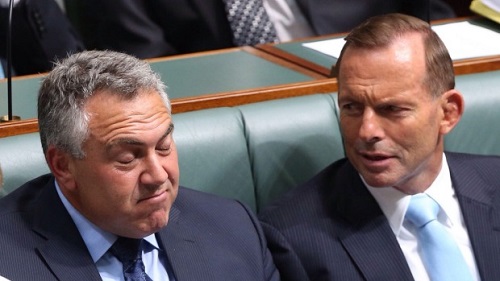
Focussing on the budget, Alan Austin at Independent Australia finds a revenue megafail, all of the government’s own making.
Failures in revenue include:
-
1. Closing off $7.6 billion in annual revenue from the carbon tax
2. Closing off $3.4 billion revenue from the mining tax
3. Closing off $3.6 billion from changes to tax and superannuation rules
4. Failing to pursue $1.1 billion shifted by multinational companies to offshore tax havens
5. Failing to pursue other tax avoidance schemes
6. Failing to pursue tax evasion
7. Failing to forecast resources revenue write-down
8. Failing to anticipate falling revenue from corporate sector
This comes on top of the earlier post in which Austin found 40 expenditure items where money was wasted. Such as the Italian Carrara marble panelling Defence is putting in a Canberra building, to take one at random.
On the revenue megafail, Austin says, all were Coalition decisions, the deterioration has been dramatic, we got precisely the opposite of what was promised, it will take a treasurer and finance minister with a high level of competence, courage and authority to restore the situation, and finally, as the experiences of Spain, Ireland, Hong Kong, Venezuela and other countries show, damage done to an economy in a short time can take decades to repair.
On debt Austin says:
The Abbott Government inherited the best-performed economy in the world in 2013. Some say the best the world has seen since data collection began. Within nine months, however, ABC Fact Check confirmed deficits for the forward estimate period had doubled over Labor’s level. Now, after 17 months, net government debt has increased over Labor’s by 34.6%. It’s on track to have doubled by this time next year.
I think the initial question about liars and clunkheads answers itself.
Chris Bowen promises us a warts and all budget narrative. We’ll have to wait and see. Meanwhile Hockey is setting up to scare us to death with the intergenerational report.
See also

